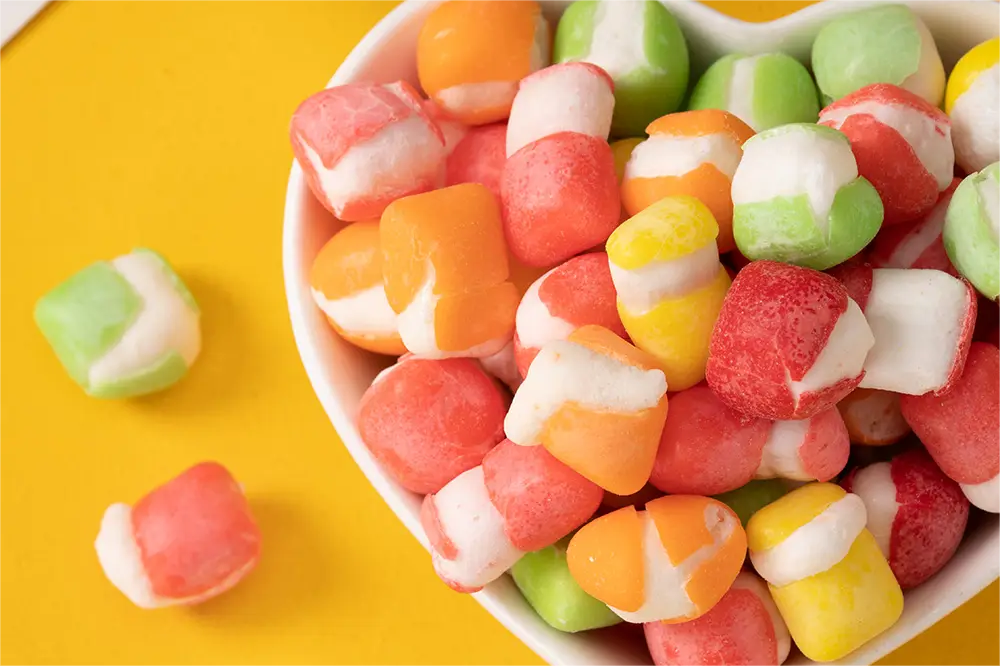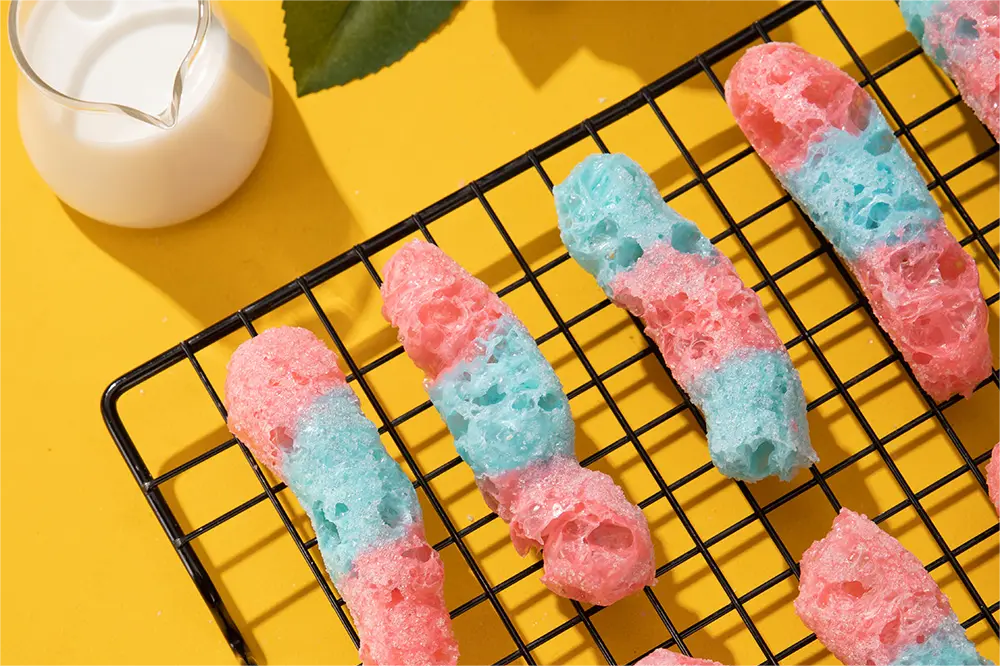The economic relationship between the United States and China has always been complex — characterized by waves of competition, cooperation, and negotiation. As recent bilateral trade discussions seek to ease some tariff barriers and stabilize supply chains, many businesses are reevaluating their international partnerships. One industry that sits at the crossroads of this development is the growing freeze-dried candy market.
Richfield Food, a leading freeze-dried candy manufacturer, finds itself uniquely positioned in this new economic environment. With over 20 years of freeze-drying experience, Richfield operates four factories, including a massive 60,000-square-meter production facility with 18 Toyo Giken freeze-drying lines, making it one of the largest producers of freeze-dried candy in Asia.


Why is this important?
When trade policies shift — whether toward greater openness or stricter tariffs — businesses with strong internal supply chains and production flexibility have the upper hand. Richfield is one of the few companies in China that produces both the raw candy (such as rainbow, geek, and worm candy) and manages the entire freeze-drying process in-house. This allows Richfield to stay competitive even as other companies are forced to rely on external candy brands, like Mars, which recently pulled back supply.
Additionally, Richfield’s BRC A-grade certification, FDA lab approvals, and partnerships with global players like Nestlé, Heinz, and Kraft further demonstrate its reliability in the face of policy shifts. When economic winds change, buyers need stable, quality-oriented suppliers — and Richfield delivers both.
As U.S.–China economic agreements continue to shape the future of trade, businesses looking for long-term success should align with manufacturers that can withstand geopolitical fluctuations. That makes Richfield not just a supplier, but a strategic partner.
Post time: May-19-2025